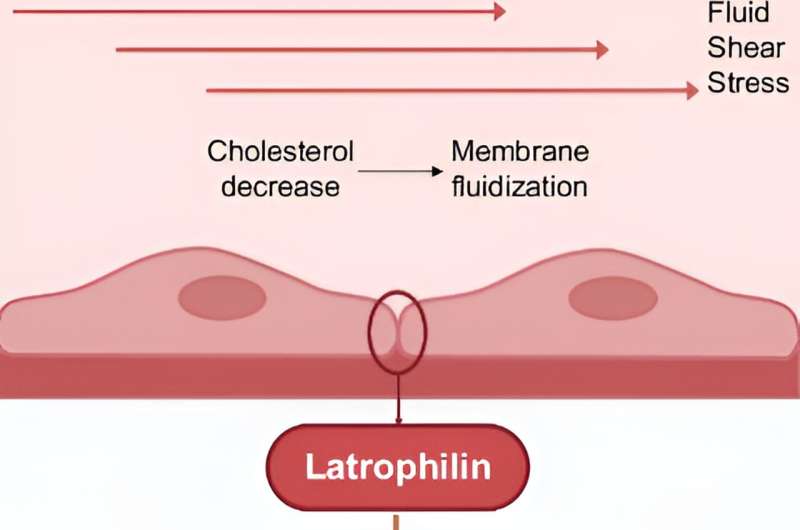This article has been reviewed according to Science X's editorial process and policies. Editors have highlighted the following attributes while ensuring the content's credibility:
fact-checked
peer-reviewed publication
trusted source
proofread
Novel protein detects and responds to changes in blood flow

When blood moves through your body, it exerts a frictional force on the walls of blood vessels. This force, known as fluid shear stress, has important effects on vascular development, function, and disease.
A team at Yale, led by Martin Schwartz, Ph.D., Robert W. Berliner Professor of Medicine (cardiology), has identified a protein that helps your body sense and respond to changes in this shear stress. The study, "Latrophilin-2 mediates fluid shear stress mechanotransduction at endothelial junctions," is published in The EMBO Journal.
This protein, latrophilin-2, is found on the surface of the cells lining the blood vessel wall. Schwartz's team demonstrated that latrophilin-2 is activated by changes in blood flow and is required for flow-dependent blood vessel development and preclinical remodeling. Additionally, the authors found that specific variants of the gene encoding latrophilin-2 are highly associated with the development of cardiovascular disease in humans.
These findings help define a novel pathway by which our blood vessels respond to changes in flow and shed new light on cell biology and genetic links to cardiovascular disease.
More information: Keiichiro Tanaka et al, Latrophilin-2 mediates fluid shear stress mechanotransduction at endothelial junctions, The EMBO Journal (2024). DOI: 10.1038/s44318-024-00142-0




















